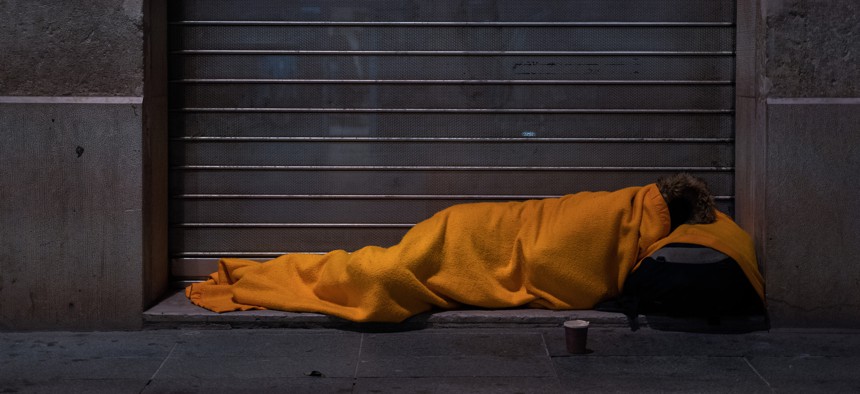The Big Obstacles Mayors Face Addressing America's Homelessness Crisis

A homeless person sleeps on the street under a blanket.
Nearly three-quarters of mayors surveyed say they are held accountable by residents for local homelessness but only 20% say they have control of the crisis, a new report shows.
In the U.S., millions of residents experience homelessness each year, affecting more people who have opioid-use disorders or who are diagnosed with cancer. Mayors are consequently on the front lines of America’s homelessness crisis and must weigh the needs of different constituencies, according to a report by the Boston University Initiative on Cities.
According to the report, 73% of the mayors surveyed perceive themselves as being held accountable by residents for local homelessness while about 20% say they have a lot of control over the situation.
One obstacle preventing leaders from doing more is money: Over 60% of mayors surveyed said that limited funding is a significant barrier to addressing homelessness. Mayors also said they have limited access to data on homelessness. In fact, about 10% of mayors surveyed say they do not have access to any data and 38% surveyed say they only have access to annual data.
Other obstacles mayors say they face is public opposition to new housing and shelters, limited human services and a lack of coordination between different government and social service agencies.
In addition, mayors say they have limited staff capacity to address homelessness with about 28% surveyed saying they have no staff exclusively devoted to serving people experiencing homelessness. About 38% of mayors house their staff dedicated to homelessness in social services while 22% place those staff in their police departments, the report says.
Mayors Are Critical Partners
While the roots of homelessness are expansive across health care, housing, workforce and geography, the visibility of unsheltered individuals is confined to the parks and plazas where they gather and the organizations that manage those spaces, according to a report by Brookings.
As the homelessness crisis grows, mayors are critical partners in ending it, according to the Boston University survey. Facing limited funding and steep public opposition, they must help coordinate a fragmented set of public and private-sector actors across multiple levels of government and geographic areas to combat the crisis, according to the report.
With many cities experiencing steep increases in their homeless populations, U.S. cities and their leaders need more support and insight into best practices at the local level to provide effective and coordinated aid to their residents in need, the report contends.
Boston University invited mayors to participate in the Menino Survey of Mayors and spoke with 126 mayors between June and August 2021 about a variety of topics including housing and homelessness, the Covid-19 recovery and closing the racial wealth gap.
For more information from the Boston University Initiative on Cities report click here.
Andre Claudio is an assistant editor at Route Fifty.
NEXT STORY: How a Powerful Company Convinced Georgia to Let It Bury Toxic Waste in Groundwater





